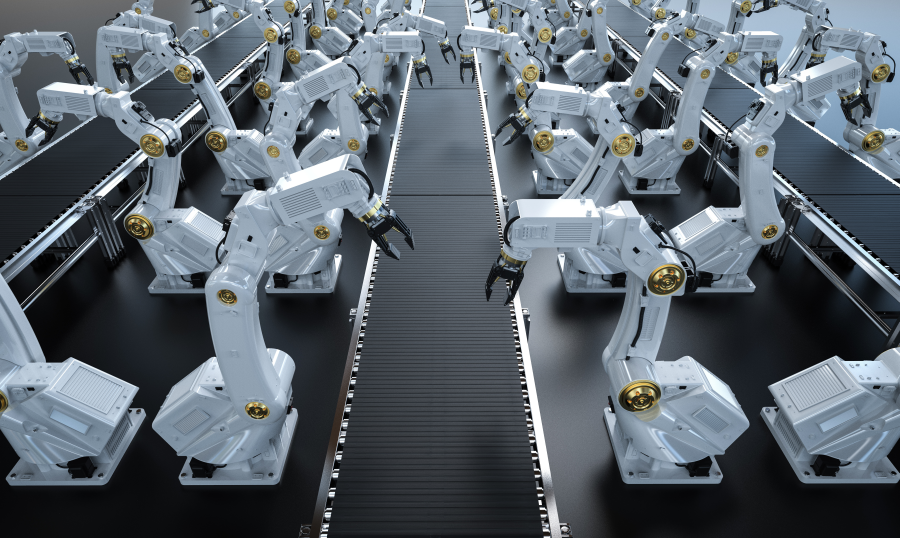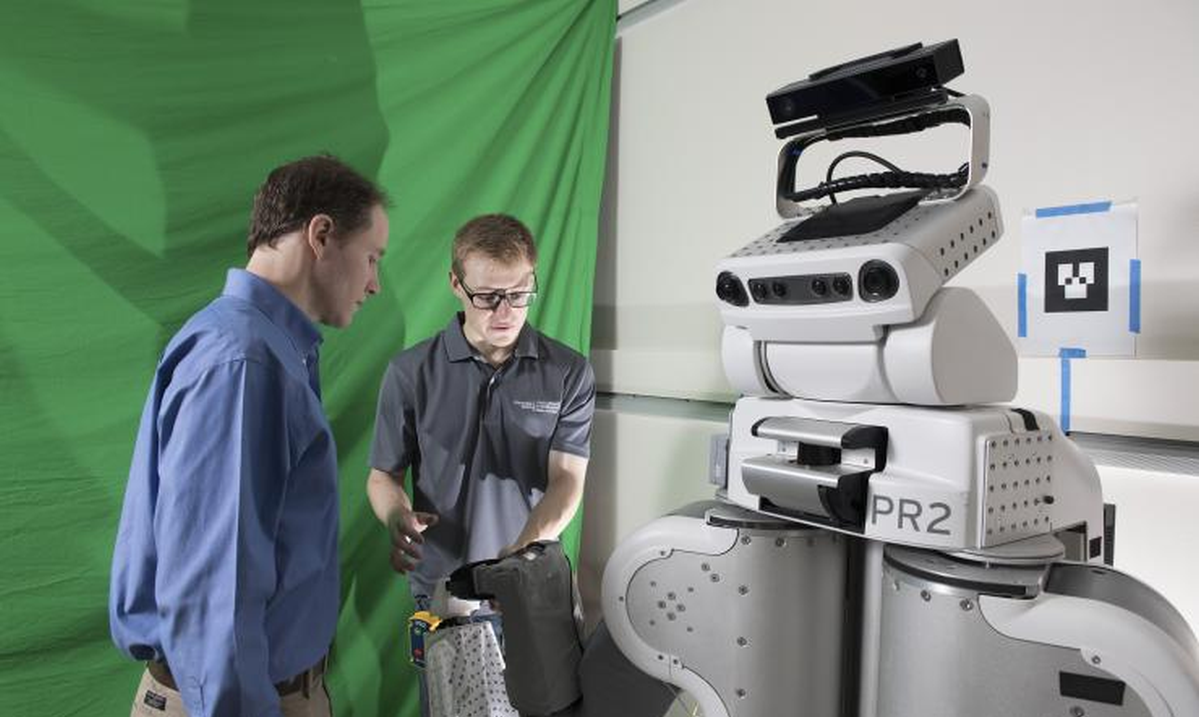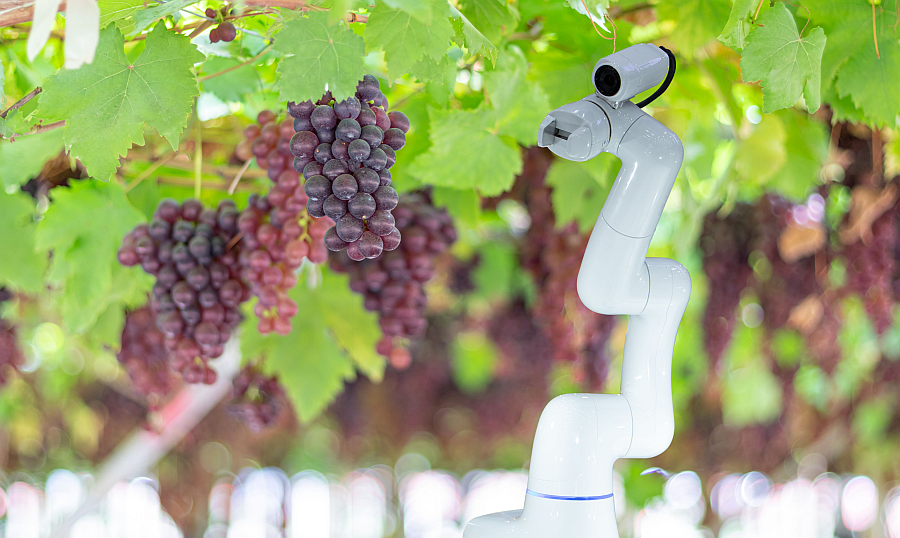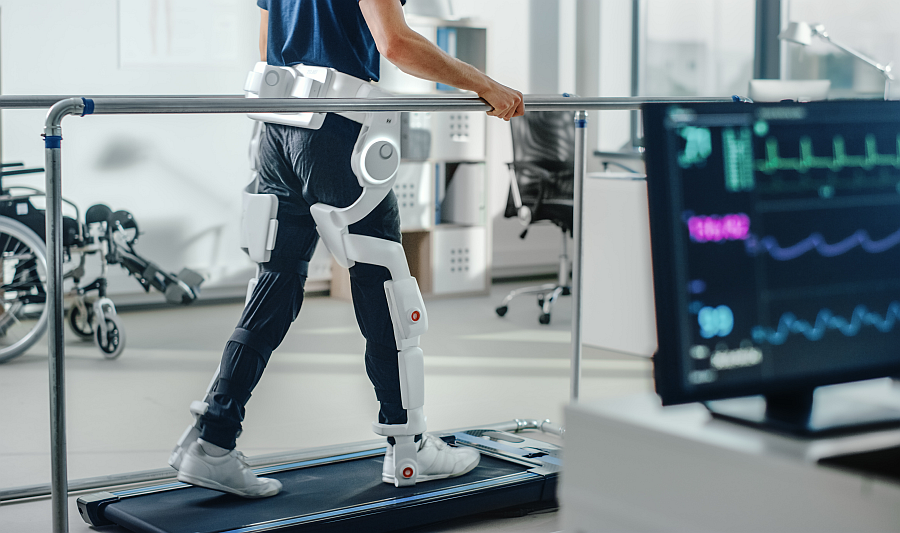Licensing Georgia Tech Robotics Innovations
Georgia Tech offers a large portfolio of available technologies in robotics that can help solve industry R&D challenges.
We help Georgia Tech innovations and discoveries benefit the public by allowing industry to license and continue to develop and commercialize these cutting-edge innovations.

Available Technologies:
Automation and Logistics
ScheduleNet: Advancing Multi-Robot Coordination
Dr. Matthew C. Gombolay | Anne and Alan Taetle Assistant Professor of Interactive Computing
Potential Commercial Applications
Manufacturing facilities | Warehouses | Smart manufacturing markets | Assembly-line processes
Flight Control System for Miniature Aerial Robots
Dr. Fumin Zhang | Professor, School of Electrical and Computer Engineering
Potential Commercial Applications
Miniature aerial robots | Small-size ground robots | Lightweight outdoor robots | Remote-controlled toys
Highly Effective Motion Capture Marker for Small Aerial Robots
Dr. Fumin Zhang | Professor, School of Electrical and Computer Engineering
Potential Commercial Applications
Camera Positioning Mechanism Using Simulated Bio-Vision Actuators
Dr. Jun Ueda | Professor, School of Mechanical Engineering
Potential Commercial Applications
Smart Device Control of Robot Swarms in a Changing Environment
Magnus Egerstedt | Professor, School of Electrical and Computer Engineering
Potential Commercial Applications
Cable-Driven Four-Bar Link Leg Mechanism
Claudio Vinicius Di Leo | Assistant Professor, School of Aerospace Engineering
Potential Commercial Applications

Available Technologies:
Human Centered Robotics
Autonomous Indoor Robotic Blimps
Dr. Fumin Zhang | Professor, School of Electrical and Computer Engineering
Potential Commercial Applications
Human robot interaction- facial recognition and recognizing human gestures | Aerial Internet of Things (IoT) sensing platform | Guiding groups in large public facilities | Environmental mapping | Scientific research and education
Dr. Gil Weinberg | Professor; Georgia Tech School of Music, Director; Georgia Tech Center for Music Technology
Potential Commercial Applications
The system can assist individuals with tasks that normally require more than one person. For example, military personnel, rescue workers, and factory workers would be able to carry heavier loads. The robotic limb may further boost the wearer’s performance with faster, more sophisticated, more delicate, and more dexterous gestures. Medical professionals, musicians and painters may greatly benefit from these enhancements.
Voice-Activated Robotic Exoskeleton for Rehabilitation and Assistance
Dr. Jaydev Desai | Director; RoboMed Laboratory and Professor; Wallace H. Coulter Department of Biomedical Engineering
Potential Commercial Applications
Patients suffering from upper body motor dysfunction: Stimulate recovery at home under the guidance of a medical provider. | Patients with degenerative diseases, stroke, and trauma injury: Ongoing recovery outside of the clinic.
Rubber Encapsulated Pressure Sensor for Contact Sensing
Claudio Vinicius Di Leo | Assistant Professor; School of Aerospace Engineering
Potential Commercial Applications
Robust Contact Sensing | Articulated robotic appendages

Available Technologies:
Manufacturing & Agricultural
SlothBot: Sustainable Solution
for Studying Climate Change
Dr. Magnus Egerstedt | Steve W. Chaddick School Chair and Professor, School of Electrical and Computer Engineering
Potential Commercial Applications
Environmental monitoring | Conservation research | Precision agriculture | Autonomous sensing/monitoring equipment

Available Technologies:
Medical and Surgical Robotics
Dr. Jun Ueda | Professor, School of Mechanical Engineering
Potential Commercial Applications
Diagnosis of soft tissues | Treatment and diagnosis of spinal column conditions | Imaging for diagnosis of intervertebral disc (IVD) degeneration | Intra-spinal injections | Other MRI and MRE applications benefiting from precise and rapid guided positioning of instruments and intervention tools
Multiple Degree-of-Freedom Micro-Scale Guidewire
Dr. Jaydev Desai | Director; RoboMed Laboratory and Professor; Wallace H. Coulter Department of Biomedical Engineering
Potential Commercial Applications
Interventional and minimally invasive devices and guidewire | Use for physicians or teleoperatively | MRI, ultrasound, CT, Fluoroscopy, etc. | Vascular surgery, interventional cardiology, cardiothoracic surgery, neurosurgery, etc.
Steerable and Flexible Robotic Endoscopic Tool with Instrument-Changing System
Dr. Jaydev Desai | Director; RoboMed Laboratory and Professor; Wallace H. Coulter Department of Biomedical Engineering
Potential Commercial Applications
The technology is designed to be used for tool bodies in neuroendoscopy but may be beneficial in any endoscopic procedure where multiple degrees of freedom are needed while keeping the tool diameter small.
Microrobots for Neurosurgery Applications
Dr. Jaydev Desai | Director; RoboMed Laboratory and Professor; Wallace H. Coulter Department of Biomedical Engineering
Potential Commercial Applications
Medical and surgical applications | Civil engineering and search-and-rescue operations
Robotically Steerable Guidewire for Improved Vascular Intervention
Dr. Azadeh Ansari | Assistant Professor & Sutterfield Family Early Career Professor; School of Electrical and Computer Engineering
Potential Commercial Applications
Neurosurgery for brain tumors, including biopsy of the human brain, targeted drug delivery, and eventually surgical intervention | Other neurosurgical and soft tissue applications.





